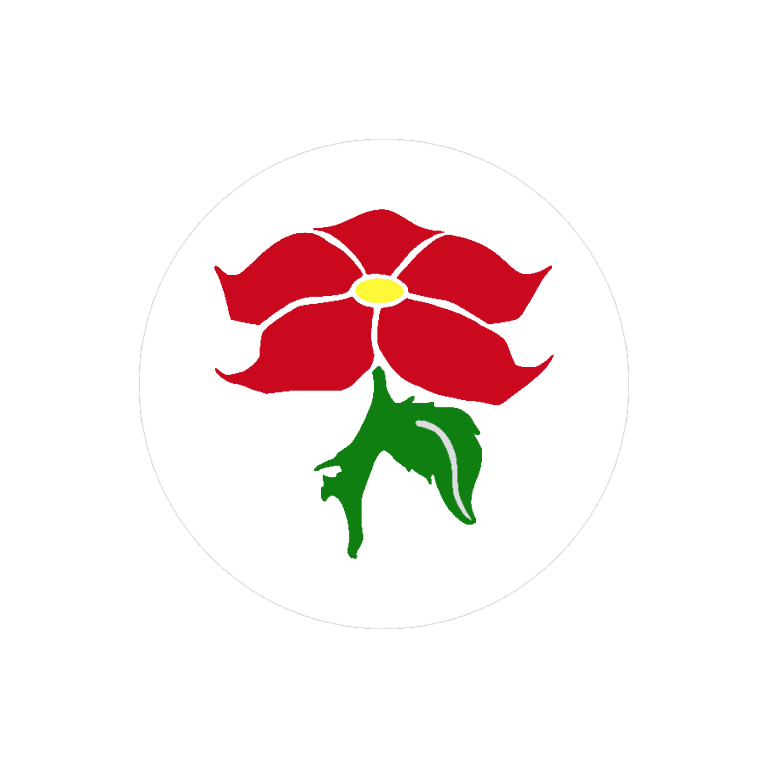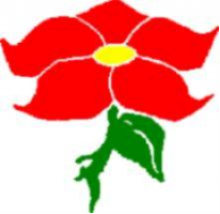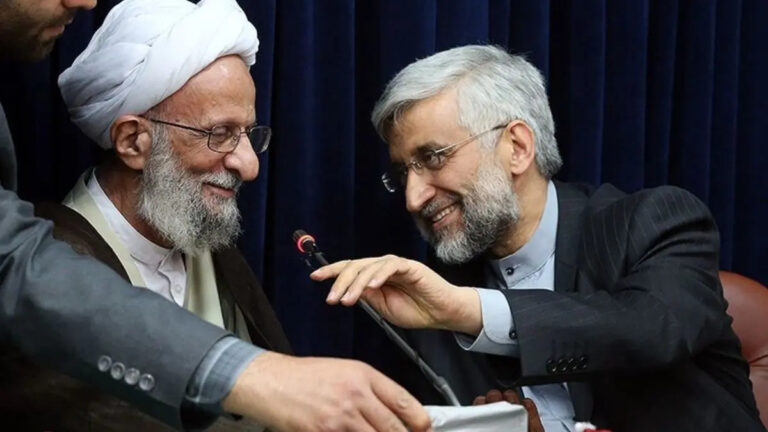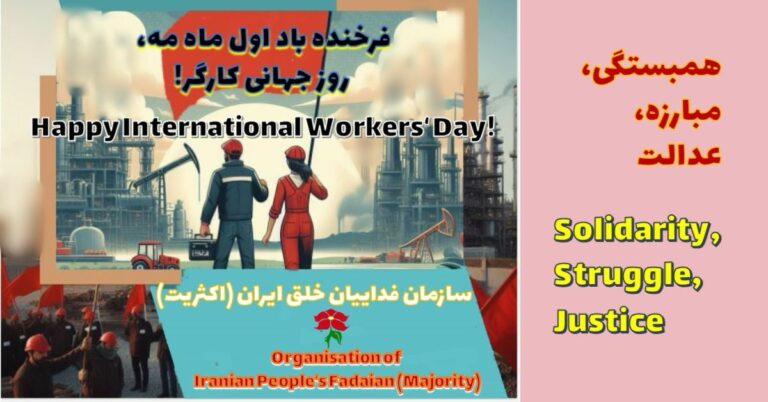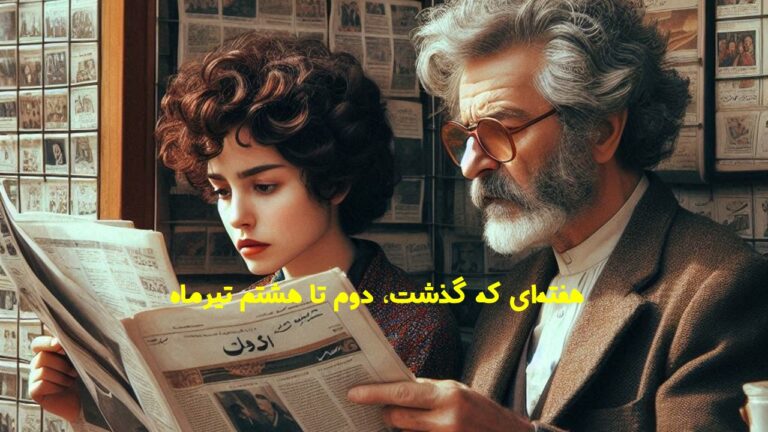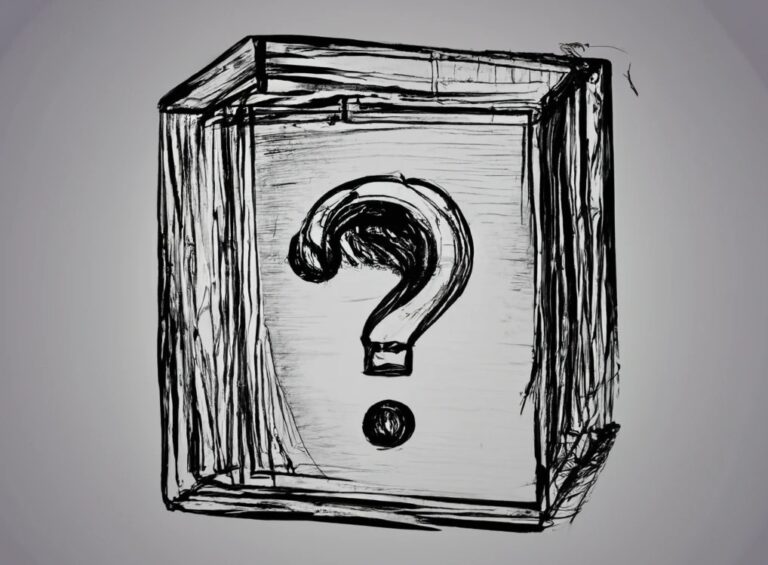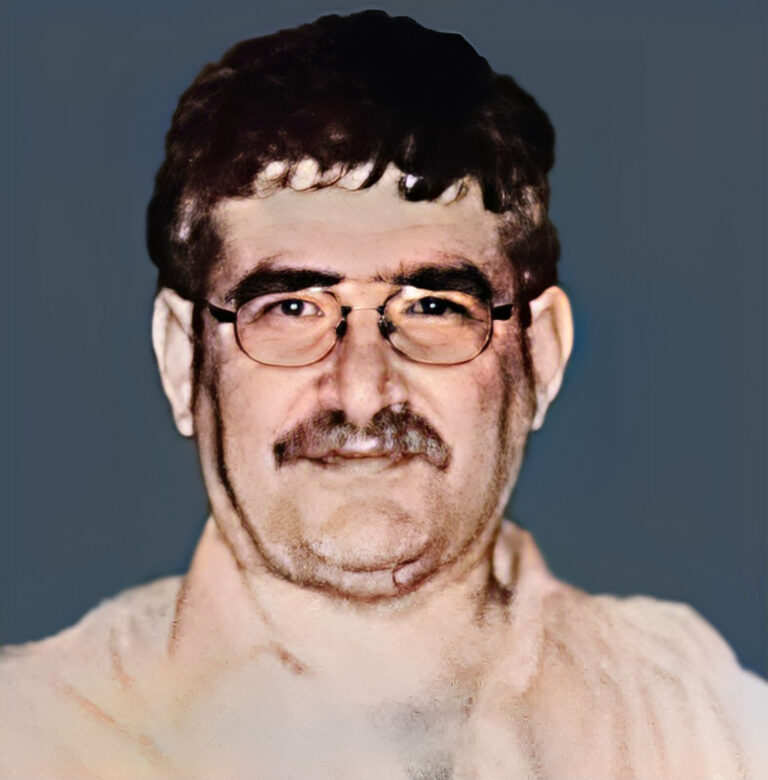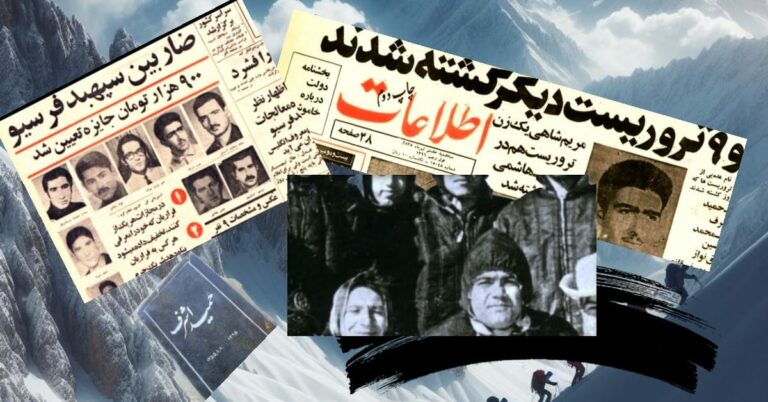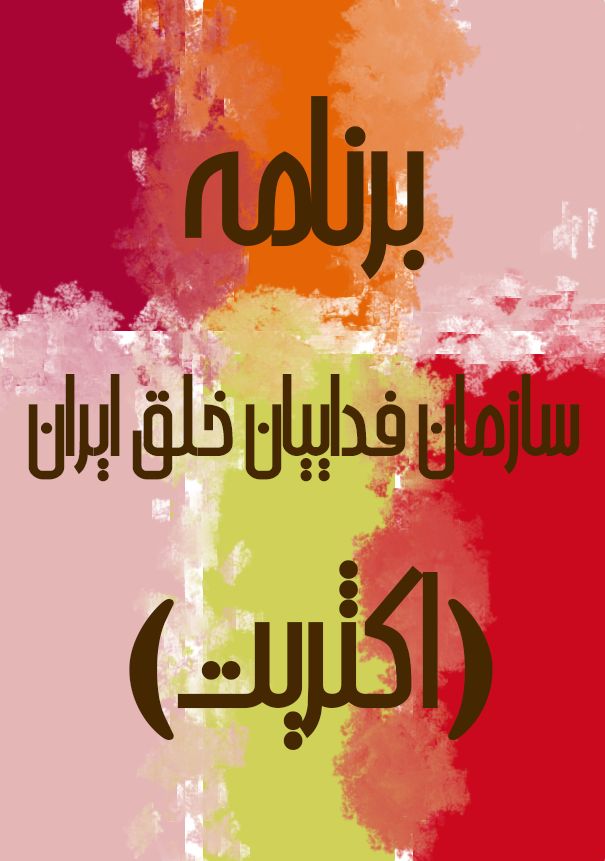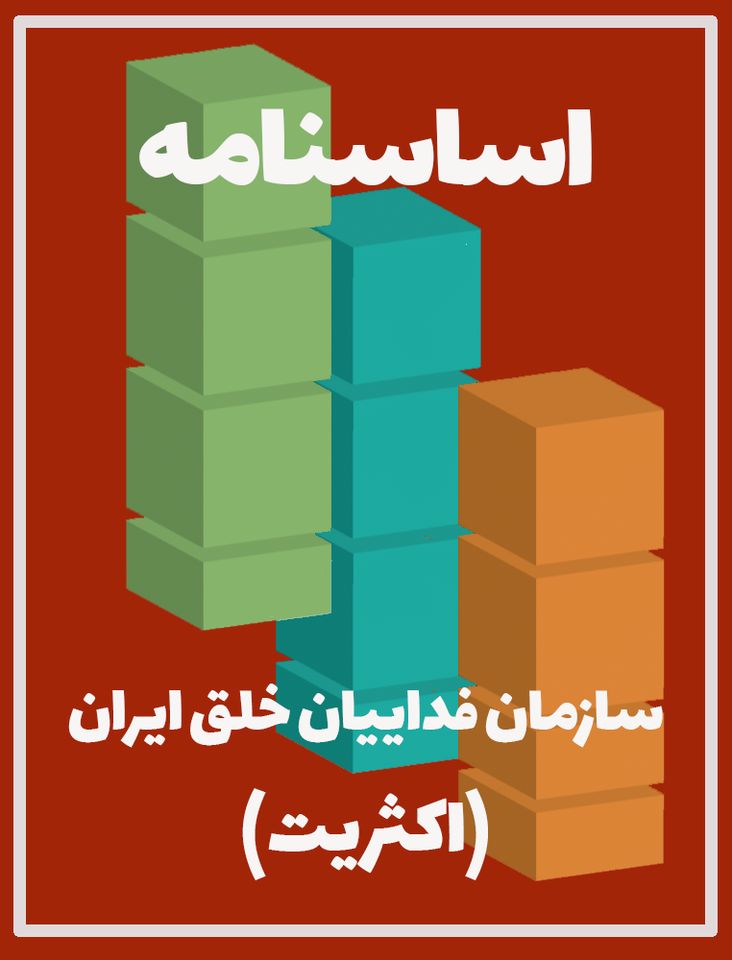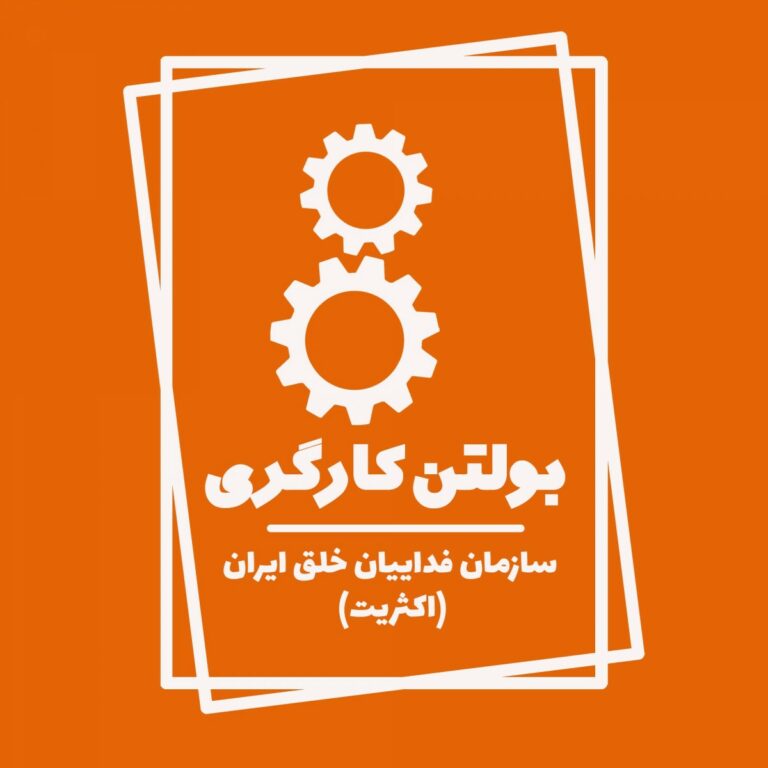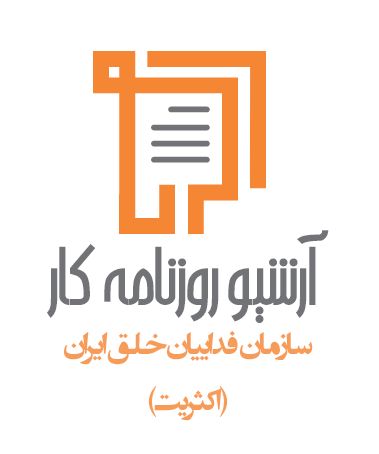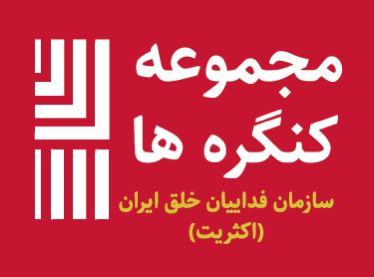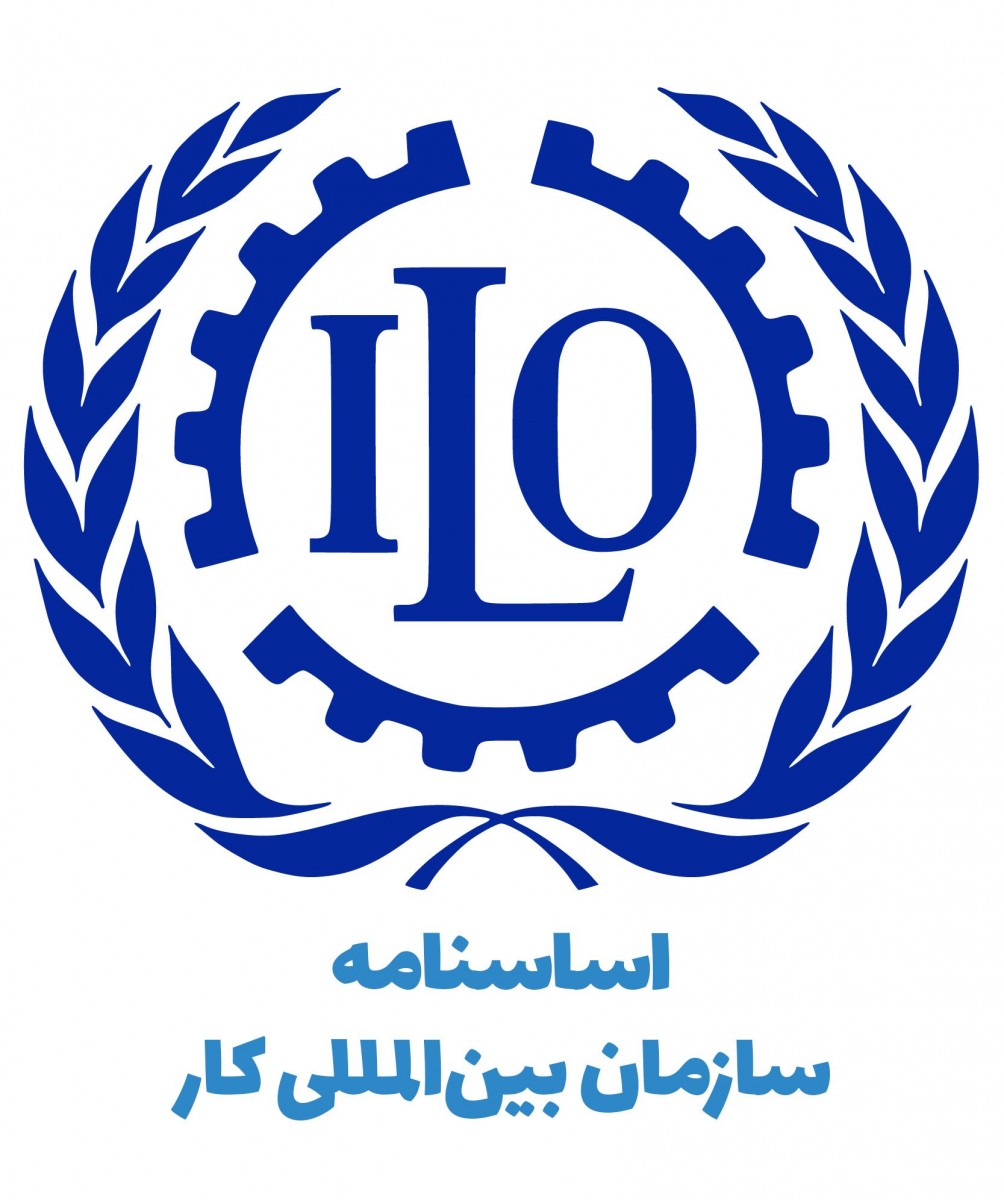The eighth Parliamentary election was held in the same way as our organization and several other organizations predicted. Whereas free, democratic, and fair election has been recognized as an arena for political parties to challenge each other and for power transform worldwide, whereas Latin American countries have put behind power transform by coup de’tat, and whereas our neighboring countries are pacing free election paths, the Islamic Republic has distanced itself from free election and has moved toward controlled election.
The eighth parliamentary election was the most undemocratic, non-competitive, engineered, and closed election in the whole life of the Islamic Republic. The ruling bloc had determined the outcome of the election behind the closed doors. In order to have the Osulgarayan (fundamentalists) in a superior position and pretend that the parliament is not a one voice parliament but a multi voice one, the ruling block wanted Osulgarayan United Front to win the election, critiques and popular individuals not to get elected, reformists not to gain majority status but only a noneffective group of them get elected.
By ignoring peoples’ protests, the ruling block who controls power tools and institutions, managed to proceed with their agenda without any serious obstacle by mass elimination of independent, critique, and reformist candidates and by eliminating ”others” (those who are not with them) in the counting process.
The supreme leader wanted to have a parliament that follows and executes his orders, ignores social movement activist’s suppression and plays only an observer’s role in international and nuclear project policies which are under his direct control and Ahmadinejad’s jugglery.
By the end of election process, it is clear that Osulgarayan have two third of the parliament and reformists and independents have the minority status.
Extent of People’s Participation in the Eighth Parliamentary Election
According to the 1385 census and by considering the voting age (18 years and older), death rate, and foreigners, there were around 48,835,000 eligible to vote in the eighth parliamentary election across the country. Based on internal ministry claim, regardless of fraud, 22,832,000 people cast their ballots. Thus, rate of participation was 46.75%. This figure was 51.21% in the seventh parliamentary election which means that in this election people’s participation decreased by 4.46% compare to the previous election.
Prior to the eighth parliamentary election (last working day of 1386), the current parliament for the first time ratified that blank, illegible, and falsified ballots would be accounted for as cast ballots, provided that observation board of constituencies approves it. Thus, those who cast their ballots to get their birth certificate stamped, contrary to the previous elections, were accounted for as eligible voters.
If we assume 5% of vote were void (9.8% in Tehran, 8.6% in Tabriz, 5.6% in Mashhad), only 21,744,000 people participated. In another words, 44.5% of the eligible voters participated across the country.
Based on the same analysis, in Tehran constituency and outskirts out of 6,555,000 eligible voters only 1,740,000 participated, which is 26.54% and 2.57% less than the last parliamentary election. In Tabriz, Azarshahr and Osku and outskirts 29.2% participated which is 2.59% less than the last parliamentary election. In Mashahd and Kalat constituency, these figures were 33.82% and 13.28%, respectively. By considering void ballots, the rate of participation would be even less. In other large cities, the rates of participation were very much the same (figures are from Akbar A’lami’s website).
Assessment of the Eighth Parliamentary Election
۱- In spite of vast propaganda of the regime and call on the people to participate in this undemocratic and unfair election, the majority of people did not show interest in participating for various reasons. Based on the published figures, 55% of the eligible voters did not participate or cast void ballots. Thus, people’s participation in this election was less than all previous ones and below 50%. Some of the government media also agreed on this fact.
۲- Vast majority of people came to the conclusion that their votes do not have any effect on political situation change and the ruling block needed their votes to buy legitimacy for the Islamic Republic and secure ruling block hegemony. For this very same reason people did not participate. But the supporters and the social base of the Osulgarayan felt that their votes were effective, thus participated actively.
۳- Reports, including reformists’ statement indicated that fraud was more obvious in this election compare to the previous ones. In Tehran, fraud was so obvious that even Mohammad Khatami and Mehdi Karoobi requested a recount.
۴- A large portion of the turn out was in the small towns, villages, and national minority regions. In these regions, peoples participate because of their political affiliations, national and family interests, regional issues, and also due to existence of secure atmosphere. This is also true that the Islamic Republic has wider social base in more traditional and closed regions as oppose to the large cities. But in the large cities, people’s turn out is more political and reflects their political relations with the ruling regime. Based on this analysis, it is fair to say that more than 73% of eligible voters in Tehran and more than 70% in Tabriz, Shiraz, Ahvaz, and other large cities did not participate in the election.
۵- From the beginning of the revolution, Iranian rulers have used election as a tool to gain legitimacy and called peoples’ mass participation in the election as ”allegiance” with the system. For this reason, they try hard to bring more people to the polling stations to show the world that they gain their legitimacy from the people. On the other hand, elections create opportunities for various groups of people to show their views about the regime by participating or not participating and by voting for certain candidates. Therefore, in regime and also in various social groups’ minds, participating or not participating in the election is a reflection of people’s relations with the regime. Statistics indicate a significant decrease in peoples’ turn out in the recent election across the country, especially in the large cities. This fact indicates that the majority of the people are opposed to, critiques of, or unsatisfied with the Islamic Regime.
۶- Haddad Adel (speaker of the seventh parliament) was on the top of the list of all Osulgara groups as their favorite candidate. He gained only 12 to 13 percent of the votes. This is the case for all Osulgara top listers in the large cities. Based on this fact, one would conclude that the fundamentalists have only a social base of 12 to 13 percent. Osulgarayan, by having one eighth of people’s support, are controlling the parliament and other power organs and institutions.
۷- In the parliamentary election, there was no sign of women’s representatives, who constitute half of the country population, working class and toilers’ representatives, or social movements. In this election, the number of women who got elected is less than all of the previous parliamentary elections. The Islamic Republic has blocked the most populous social groups’ participation in the political process of the country. These social groups will not have representatives in the eighth parliament.
Consequences of the Parliamentary Election
Eighth parliamentary election has certain consequences. Some of the consequences are pointed out below:
۱- Election strengthened the supreme leader’s position in the power structure and showed that he is able to manage the election and get the favorable results out of it.
۲- Overwhelmingly rejection of the reformists and pushing them to the minority status of the parliament is an indication of the fact that the ruling block is determined to push the reformists to the side and deny them of gaining control over executive and constitutional branches of the government.
۳- In the past, If Khamenei pretended to be above the entire regime factions, and if his support of one faction was in the form of ”regime sentence”, this time, he openly and without any hesitation rejected one faction and took the side of another.
۴- In this election, the Iranian Revolutionary Guard Corps (IRGC) entered the campaign more openly and more prepared and specifically supported fundamentalists. IRGC’s role was more significant compare to the seventh parliamentary election and as such it strengthened its position in the constitutional branch.
۵- In this election, even people’s right to choose between regime factions was denied. In another words, it was obvious that the ruling block would emerge as the winner, regardless of people’ views and votes. This was crystal clear in Tehran.
۶- Election is an opportunity for political parties to present their platforms to solve country’s problems. Our country is facing serious difficulties. Unemployment has increased, harsh inflation has worsened lives of workers and toilers, gap between poverty and wealth has widened and uncontrolled imports have weakened the domestic production. Our country is facing nuclear crisis and international sanctions and is under international pressure. In fact, these issues must be the core of the campaign and political parties must have a chance to present their platforms, so people would be able to choose among them. But what were not propounded were people’s demands and agenda for solving country’s problems. The ruling faction’s challenge was controlling the election process, eliminating the rivals, and securing its victory.
Change in the Election’s Role in the Islamic Republic
In the Islamic Republic, election has always been undemocratic and opposition forces and representatives of an important portion of the social groups have been denied of running in the elections. In the ruling regime, election was an arena for various factions of the regime to challenge one another and shift of power was possible among them. But after ultra right fundamentalist (URF) current took power the election position changed in the Islamic Republic.
The experiences of the last few elections showed that URF current uses election as a ladder to climb up to the power, not as a mean for people to elect their representatives, not as a competitive battlefield for political forces, and not as an arena of challenges of various platforms for securing various social group’ demands. After climbing to the power, the URF current pushes the ladder away that no other force can climb up the power hill. It does it by canceling the election or eliminating the rivals and executing an ordered and managed election.
The parliamentary election verified that the supreme leader, along with the IRGC and URF current have decided to have an engineered election and produce their favorite results. Thus, one can say that in the Islamic Republic, role of election has changed and shift of power between regime factions is no longer possible.
Center of Challenge in the Regime
By denying reformist entrance to the power structure and limiting their activities, the heart of challenge within the regime has changed now. In the previous decade challenge was between reformists and fundamentalists. But currently, it has moved into the fundamentalist faction. The subject of this challenge is not about human rights, political and social freedom and reform in the regime structure, but basically about gaining more share from the oil revenue, enjoying more of regime’s rentier, and administering the country’s affairs.
The URF current is trying to push its rivals to the side and constitute a uniform government. Although this faction has been able to push the reformists to the side of the power and make them a less effective force in the political scene of the country but the gaps inside the ruling faction is growing and a new political array is emerging. Osulgarayan currently consists of Ahmadinejad’s supporters, Isargaran, Jamiyat-e Mo’talefe and Society of Militant Clergies, and Vast coalition of Osulgarayan. They are united against opposition forces and critiques and against one another internally.
Inner Reformists (reformists who make up an internal force of the regime)
Inner Reformists had welcomed the parliamentary election from a year ago and by establishing Vast Reformists Coalition had hoped to send some of their prominent figures to the eighth parliament. But their optimism and hope did not match with the reality. Their candidates were massively eliminated and just a few unknowns had chance to compete. Nevertheless, they did not protest seriously and participated in those constituencies that all of their candidates were not eliminated. The reformists protested against fraud in Tehran constituency and asked for a recount but the Guardian Council did not even pay attention to their request. In spite of all, they participated in the run off election in Tehran and expressed their doubt about the fairness of the election after the results were released. In spite of vast elimination of reformist candidates, they invited people to participate and vote for them. But reformists did not stand up to defend peoples’ rights who voted for them. The ruling block knew that there will not be a serious resistance from the reformists’ side. Thus, they managed to execute a planned election without a heavy price and did not allow the prominent figures of the reformists to enter the parliament. Participation figures in the large cities, especially Tehran indicated that people did not rally for the reformists.
Opposition Forces
A number of the Opposition forces outside of the country welcomed the election battlefield and organized discussions in this regard earlier this time. Discussions showed that election has an important role in their struggle against the Islamic Republic. A number of political activists inside the country established ”Defense Committee for Free and Fair Election” and compiled and published the free election principles which was welcomed by opposition forces. The Freedom Movement of Iran requested that international organization should overlook the election process. This request was strongly condemned by Khamenei.
Based on most of the opposition forces’ assessment, the election was going to be the most bounded election ever been held and Osulgarayan United Front was going to emerge as the winner of the show. This assessment was the most realistic one.
Opposition forces tried to reveal the undemocratic and controlled nature of the election and called on people not to participate. This time, a part of the opposition forces inside Iran joined the opposition forces abroad and boycotted the election. Only a small part of the opposition did not boycott the election. Low turn out of the people and position of the majority of the opposition indicate that opposition’s call for boycott was effective.
Like the previous elections, opposition was not able to emerge as a united and effective force in this election. In a joint statement, our organization and three other organizations tried to persuade people to say ”NO” to the election. However, it was limited to the four organizations and did not extend further.
Peoples’ low turn out in the election indicates that there exists a gap between people and regime and an intensifying crisis between ”state and nation”. This fact put new responsibilities on opposition’s shoulders that must seriously be considered.
Political Forces Array
Khamenei played the main role in strengthening URF current and IRGC. He, currently has the closest relations with them. Within the recent years, instead of traditional clergy, he has been leaning toward IRGC, Basij, security organs, and totalitarian faction. Although, khamenei, because of his unique position, does not represent the totalitarian faction, but they have established the supreme leader, IRGC, and totalitarian bloc. This block controls main tools of power in the Islamic Republic and tries to eliminate or weaken other factions of the regime. The ruling block was able to bring the Society of Coalition (Jamiyat Mo’talefe) and the Society of Militant Clergy (Jamee Ruhaniat Mobarez) to the Fundamentalists United Front by allowing them to have a few seats in the eighth parliament.
Khamenei has been able to strengthen his position as the absolute supreme leader in such a way that he is able to hand pick the parliament members and with cooperation of IRGC appoint his favorite president. He tends to control all the power in his hands, make the president to execute his orders, and make the parliament to act as a noneffective and obedient body.
Khamenei’s power, as the leader of the Islamic Republic has increased relative to the previous decades but it would be inappropriate to call him monarch and his system ”monarchy”. The supreme leader, IRGC, and URF block essentially controls the political power and runs the show in national and international levels. This block has pursued ambitious and adventurous policies, has taken our country to a confrontation with the international community, and has caused three resolutions to be imposed on our country by the Security Council of the United Nations.
Controlling power by the ruling block and their policies has created a new array of forces among social and political forces. In this new array, the ruling block is standing on one side and a vast spectrum of political and social forces on the other side. Confronting this block requires coalition of a vast spectrum, from those forces who seek fundamental changes in the country political structure to those who oppose Ahmadinejad’s government and the ruling block policies. The spectrum of the Islamic Republic opposition forces and critiques has never been so vast.
The Eighth Parliament and Outburst of Gaps
Although the ruling block was able to have its favorite parliament, but the low turn out of the people in the election on one side, and expansion of the present crises, have caused the ruling regime to be concerned and have also created gaps within the fundamentalist current. The Islamic Republic is facing typical crises of an idea logic regime, such as legitimacy and competency crisis which will be deepened by economic crisis and international pressures. Ahmadinejad’s government is not only unable to contain the Islamic Republic crises but also, with its incompetence, intensifies them.
In spite of the fact that the eighth parliament has emerged from an undemocratic, noncompetitive, and managed election, it can not be immune from peoples’ dissatisfaction and the Islamic Republic deepening crises. Incompetence and economic crisis and international pressures increasingly affect country’s political aspect and weaken Ahmadinejad’s position in the regime political structure and strengthen the critique voices against the government policies. Fighting between heads of executive and constitutional branches after the election shows that relations between them will not be without tension and Ahmadinejad’s critiques within the fundamentalist current will not stay silent, especially when the presidential election is in near future and a heavy completion within the fundamentalist current is in prospect.
It is possible that the gaps within the parliament and between parliament and the government deepen and fundamentalist critiques of Ahmadinejad create a coalition with the reformist minority in the parliament and put pressures on the government and if the crises persist and deepen ask for Ahmadinejad’s impeachment. Ahmadinejad’s impeachment by the parliament can form new problems in the country political arena.
Isolation in the National and International Levels, Aggravation of Dissatisfactions
The ruling block adventurous policies in the region and in the international scale, is pushing the Islamic Republic toward an international isolation. Low turn out of the people in the election is an indication that the Islamic Republic is becoming more and more isolated inside the country as well. On the other hand, because of the inflation pressure, expansion of class gaps, intensifying poverty and unemployment, and expansion of oppressive policies, dissatisfaction in the society is ever increasing. Continuation of the current policies in national and international levels is driving the Islamic Republic to a set of crises. The deepening of the crises will be reflected in the regime and in the society in various ways and will widen the gaps within the regime various factions and will expand protest movements among the people.
Central Council of the Organization of Iranian People’s Fadaian – Majority (OIPFM)
May 8, 2008 (Ordibehesht 19, 1387)

